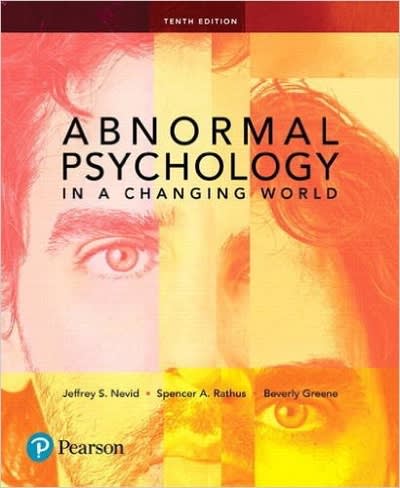What if the trauma survivor is rendered unconscious or unable to make this decision? Should the law
Question:
• What if the trauma survivor is rendered unconscious or unable to make this decision? Should the law require a prior medical proxy, or legal agreement stipulating who should make these decisions, and under what conditions? Might it be possible to erase troubling memories in people with PTSD—or at least to blunt their emotional effects? Although such suggestions may have seemed far-fetched only a few years ago, recent scientific discoveries offer such possibilities.
Researchers are exploring whether certain drugs can block disturbing memories or reduce the anxiety or fear associated with traumatic experiences (Andero et al., 2011). In one study, people with chronic PTSD were asked to recall and describe details of the PTSD-related traumatic event and were then given either a common blood pressure drug, propranolol, or a placebo (inactive drug; Brunet et al., 2007). A week later, they were asked to reactivate mental images associated with the traumatic event while the investigators monitored their physiological reactions, including their heart rate and level of muscle tension. Those who had received propranolol showed lower physiological activity compared to those who had received the placebo. It appears the drug may blunt the body’s physiological response to traumatic memories. However, more evidence of the effectiveness of propranolol in treating PTSD is needed before it could be recommended for routine use (Steenen et al., 2016).
Step by Step Answer:

Abnormal Psychology In A Changing World
ISBN: 9780134484921
10th Edition
Authors: Jeffrey S Nevid, Jeffrey S Nevid PhD, Spencer A Rathus, Beverly Greene, Beverly Greene PhD






